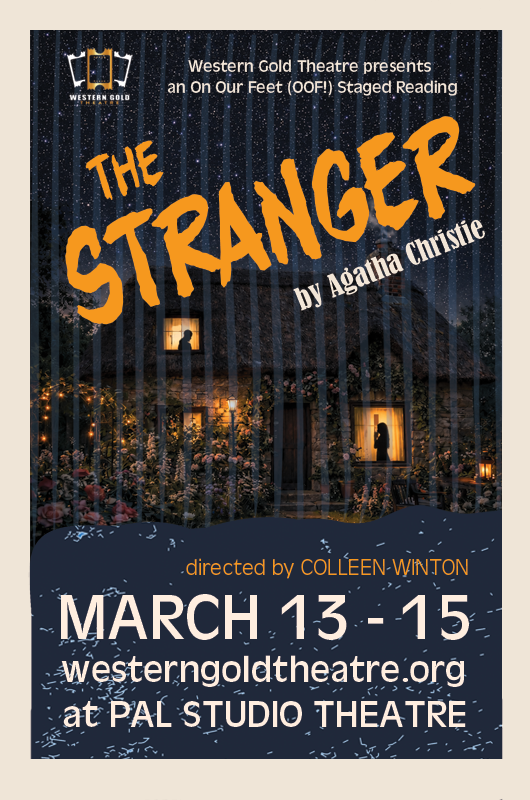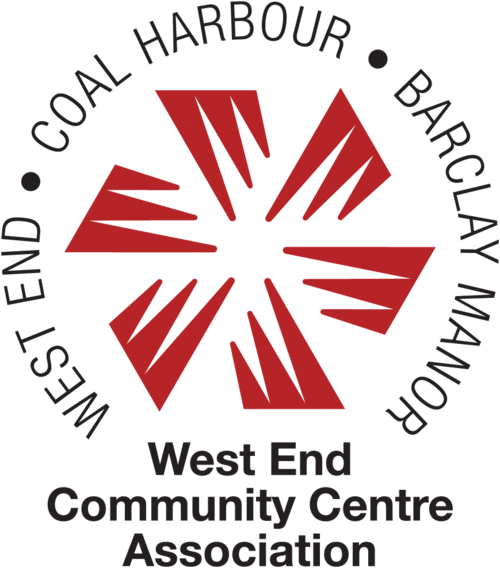A CLOSER LOOK
/WHEN YOU DON’T FEEL SAFE ON YOUR LOCAL STREETS
Smashed storefront doors and windows are just the most visible signs of the rise in public disorder.
by John Streit
Jacqui Birchall has generally always felt safe in her beloved West End. But a frightening thing happened back in September that has sadly changed her mindset.
The long-time contributor to The West End Journal was walking west of Denman when she noticed a man right behind her who started swearing and screaming. “When I arrived at the last apartment building on Chilco Street near Georgia. I rang my friends’ buzzer. I realized the man had not passed me. I turned and he was right behind me. ‘Anyone live here?’ I ignored him. My friend buzzed me in. I grabbed the lobby door behind me to pull it as he screamed ‘f$%k you bitch!’ I was scared because no one lives at the lobby level. The apartments have triple glazing so cries cannot be heard, and the building entrance is isolated with no building facing it,” she says.
Birchall says this is the first time she has felt nervous in her neighborhood, except a couple of times on the trails in Stanley Park. “I don't generally feel unsafe on West End streets with buildings on both sides of the street, although with the stranger attacks lately I feel I should be more aware.”
Indeed, a pandemic uptick in the number of random stranger attacks, street disorder and other crimes has been top of mind for many West Enders. Vancouver Police Department statistics back-up those concerns with an increase in all three violent crime categories over the last two years. VPD numbers provided to TWEJ show sex assaults increasing 11 percent, assaults have increased 26 percent and robberies are up five percent since 2019.
One of many unsanitary gifts left for staff at a West End store.
The large “Most Wanted” cork boards at one grocery store (we’re not identifying the store) in the heart of Davie Village (many shops, businesses and public buildings like community centres have these in staff rooms) are filled with surveillance video photo captures of suspected thieves and other people banned from entering for various reasons. TWEJ spoke to an exasperated staff member (who wished to remain anonymous) about the situation in and around his busy store.
Here are just a few of the many shocking incidents he says have shaken him and his co-workers:
Security guard asks a gentleman who had been previously banned due to violent behavior to leave. The man proceeded to walk to the back of the store, defecate in a milk crate and then proceed to throw the filth onto the receiving doors, making sure to cover the door handle and lock with his leavings.
A knife or screwdriver was pulled on the security guard.
An employee was knocked out cold by an enraged customer unhappy with the outdoor lineup during the peak of the pandemic. Same employee later bear-sprayed, rendering her unconscious after having a reaction to the spray and being hospitalized. Most recently, the same person was threatened with physical violence from a man a full foot taller and out-weighing her by over 100 pounds.
Several employees have been followed to their cars and two were followed to transit.
A staff member’s phone was stolen from behind her counter and sold to a pawn shop.
The Davie Street worker TWEJ spoke with added that his store now has a strict "no pursuit, no touch" policy for staff and outside security guards.
“Gone are the days of detaining people until the police got here. Instead we either hand-wave the miscreants or step to one side as they march out without giving the staff a second glance.” He adds that replacing humans with machines at the check-out counter has only made it easier for people to steal. “The machines cannot double check a purchase, look for thieves, detect a stolen credit card, nor alert the staff of product hemorrhaging its way onto the streets or into the flea markets.
“With theft comes an income and with this income comes access to illicit drugs. Drugs plus mental illness plus poverty often result in violence towards those that stand in the way of the products that are traded or sold for drugs - the cycle doesn't end,” he says.
In September, BC Attorney General Murray Rankin received the results of a report into chronic offenders and random, violent assaults in our communities. The province hired Amanda Butler, an expert in mental health criminal justice systems and Doug LePard, an expert in policing and criminal justice, to do a fast-tracked rapid investigation into public safety concerns. In all, 28 recommendations were made and released. The province says it’s already working on three of those recommendations:
Bringing back the prolific offender management program that ran from 2008 until 2012. The program had success bringing together community partners such as police, mental-health and community support service providers to monitor and help offenders break the cycle of repeat offending and was shown to reduce repeat offending by as much as 40 percent in the first year.
Establishing a dedicated provincial committee to coordinate supports for people with complex health-care needs in the criminal justice system.
Supporting work by the BC First Nations Justice Council to develop a pilot program based at the Prince George First Nations Justice Centre to better support Indigenous people who come into conflict with the law.
Back in May, when he was still BC’s Attorney General and announcing the launch of the report into chronic offenders, now premier-designate David Eby said “simply because we are compassionate, concerned and taking action on mental health and addiction issues does not mean that we have to accept criminal behaviour, vandalism or violence in our communities.
West End business owner John Clerides.
West End small business owner John Clerides is one person who promises to hold Eby’s feet to the fire on public safety.
In 2021, his Marquis Wine Cellars on Davie Street was broken into. A front window was smashed and a pricey electric bike was stolen. The attack on his business made headlines across the province.
"My store has been okay over the past year but Davie Village Tanning has been broken into for the eighth time in two years. The situation hasn't gotten any better. Merchants are still annoyed and public safety is still an issue. I had lunch with a friend of mine who's an addictions counsellor and we were talking about BC versus Alberta. Alberta is going with a full recovery system to get people better. BC still refuses to do this and still talks about harm reduction. We have a new mayor but we have the same provincial government that created a lot of these problems. (Premier-designate) David Eby will be put on notice by the people who don't want to put up with these problems,” he says.
Not content with being a powerless victim, Clerides quickly took to social media and launched the Vancouver Break-Ins & Crime Collective private group on Facebook. It’s where members post videos and photos of smashed store windows, fights, assaults and other forms of street disorder and nefarious activity in our city.
"We've got like 1,400 members. it's very good and people are on-side. I'm going to ramp it up in the New Year and hold as many politicians accountable as possible. We're going to nail these harm reduction people. It's killing the city. It's killing businesses and people. They don't want to live in the Downtown Eastside, they want to get clean. But some of the places that they're forced to live in, I wouldn't have a rat living there. It's safer for them on the street."
Open drug use in West End lane
Clerides has a firsthand understanding with drug treatment in BC knowing several people who've gone through rehab, including a close family member. "It wasn't hard drugs and they weren't living on the streets, but if we didn't intervene, he'd be dead, no question in my mind."
He believes harm reduction simply isn’t working here. "It's like saying to an alcoholic who crashes a car who drank a 40 pounder of vodka ‘Sorry Bill, you're now without a car but here's another car and another 40 pounder of vodka’. I'm a vocal critic of this and things need to change yesterday,” he says.
He's calling for more private recovery-based treatment centres in BC, perhaps funded by the wealthiest British Columbians. "Between Jim Pattison, Frank Guistra, the Gagliardis, the Gillespsies and all those guys making money off high rises and bad city policy, you'd think they could start something like that up," Clerides says.
Clerides cites San Patrignano in Italy, a free addiction recovery community which claims to have treated almost 26,000 people since 1978. According to its website "San Patrignano is a community for life that welcomes those suffering from drug addiction and marginalization and helps them to once again find their way thanks to a rehabilitation program that is above all, a program based on love. It is free, because love is a gift."
Clerides says the farming co-operative community was started by a wealthy hotelier. "They get people clean, average stay is between two and four years, they teach them one of 22 different trades and there's 72 percent success rate. And here's the key - no government funding, it's all private. We need to make the West End and Vancouver safe again by helping people, that's my mantra."
He has a message for West Enders. "You do have a voice. Get on social media. I was a very vocal critic of Mayor Kennedy Stewart and would like to think I was one one-billionth responsible for getting his ass voted out. He completely ignored it (street disorder). When a senior is pushed over on the street, what kind of society do we have?"
Drug paraphernalia behind a West End business.
WE ASKED YOU - AND YOU SAID …
The West End Journal asked on Facebook “with frequent reports of random attacks by strangers throughout the city, how safe do you feel these days walking or rolling through the West End - Coal Harbour Community?” Here are a few of your excellent answers!
Laura Lang: I live in the West End and I've just recently rented a studio just north of Yaletown to teach singing and after less than a month I'm already wanting to give my notice, though I've nowhere else to teach. This is because I'm now frightened to walk the 20 blocks home in the dark by myself. This never used to bother me, but things have really changed here in Vancouver and walking alone at night for anyone, never mind a woman just ISN'T safe. I'm gonna lose a good chunk of my living because of this fear.
Michele Ley: Lived and walked here for 27 years. Only recently have I begun to feel relatively unsafe walking out, especially at dusk and night.
Chris Cross: I never walk after dark anymore. I find even during the day on my walks that I am on guard.
Anne Mauch: I feel safe.
Cynthia McLean: Safety in numbers.
Paige Campbell: Very unsafe. I know where certain threats hang out and what streets they take at certain hours and go out of my way to get home to avoid them. Even with a male partner and a large dog present, I've been threatened, spit on, yelled at, for nothing, and have seen countless acts of violence within metres like tearing apart street trees, running and jumping at magazine stands, etc, and followed for some blocks before heading into a nearby business. Hope more is done about it.
John Streit has been a BC radio, TV and online journalist for more than 20 years.
You can listen to him anchor Global News on 980/CKNW in Vancouver.
SUPPORT YOUR WEST END - COAL HARBOUR COMMUNITY MEDIA
The West End Journal, including “Joy’s Journal”, is made possible by local advertising and monthly contributions from our Faithful Readers Circle. If you would like to support your community media, please visit our fundraising site here to contribute any amount from $5 a month up. If you have a business in the West End / Coal Harbour neighbourhood, check out our advertising rates and information page here.
Thank you!
Kevin Dale McKeown
Editor & Publisher
editor@thewestendjournal.ca





